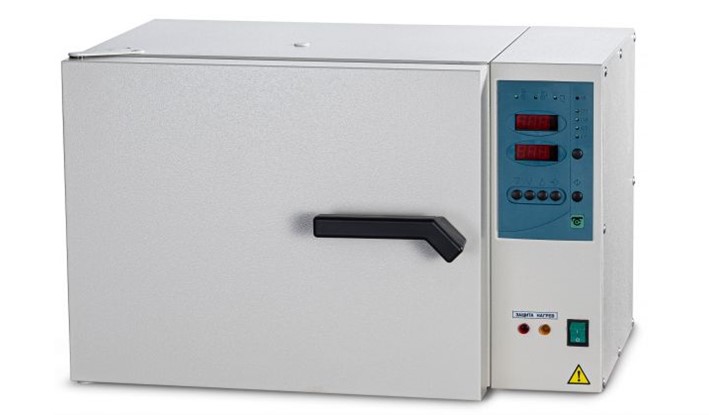A Russian company has announced plans to release a drug for cystic fibrosis.
A medical research company (MRC) may localize the production of the Argentine Tuteur drug Trilexa in Russia. We are talking about an analogue (generic) of the original drug Trikafta from the American Vertex Pharmaceuticals Incorporated, used to treat patients with the rare severe disease cystic fibrosis.
Information about the possible localization of Trilexa production in the country is contained in the materials of the trial between MIC and Vertex. The Russian company cited this argument in COURT so that it would be allowed to arrange supplies of the Argentine drug to Russia. In Russia itself, drugs for the treatment of cystic fibrosis are not currently produced.
How is cystic fibrosis treated in Russia?
The original drug Trikafta from Vertex Pharmaceuticals appeared in 2019 when it was approved by the US Food and Drug Administration (FDA). In Russia, this medicine was registered only in August 2023, although the company submitted an application back in 2021. Patients have repeatedly asked the Ministry of HEALTH to speed up this process: if the drug is not registered in Russia, it could only be obtained by decision of a council of doctors, and this greatly increases the waiting time. Before this, only one drug for the treatment of cystic fibrosis was registered in Russia - Orkambi, also from Vertex Pharmaceuticals. However, Trikafta works against a much larger number of gene mutations that cause the disease, and is considered more effective in prolonging the life of patients.
What is cystic fibrosis
Cystic fibrosis is a severe genetic disease in which a defect in a gene causes thick, sticky mucus to be produced in the lungs, pancreas and other organs. It clogs the airways, which leads to the development of dangerous, difficult-to-treat infections. A person gets sick if both his parents had defective genes. According to the register of patients with cystic fibrosis, in 2020 (there are no more recent data), 3,722 patients with this disease were registered in Russia, while the proportion of adults was only 26.5%. The average age of patients was 9.7–13.7 years, with the oldest patient being 63 years old.
In Russia, cystic fibrosis is one of the rare, that is, orphan diseases, the treatment of which is carried out at the expense of the federal budget within the framework of the program of 14 high-cost nosologies. Drugs for its treatment are also purchased at their own expense by the regions and the Circle of Good Foundation.
The state spent 2.8 billion rubles on the purchase of the drug Trikafta from 2021 to October 2023, the analytical company Headway Company clarified. For the treatment of the same disease, another 2.4 billion rubles. Vertex Pharmaceuticals drugs Kalydeco and Kaftrio were purchased, which together form the same set of active ingredients as Trikafta. In total, since the beginning of 2023, all three drugs have been purchased for 2.4 billion rubles.
Read PIONERPRODUKT .by Linux - a new technological paradigm in Russia. How Windows is dying I’m shaking all over: what will help calm down the anxiety before the interview Dearoil , weak ruble , geopolitics: what will happen to Russian shares Who in Russian IT is now paid ₽500 thousand, and who has already begun to be cut
What manufacturers argue about
In 2022, another drug for the treatment of cystic fibrosis, Trilexa from the Argentine Tuteur, began to enter the Russian market. This is an analogue of Trikafta, which has not yet been registered in Russia. According to Headway Company, it is imported by Atonfarm and Farmstore, which until February 2023 was the management company of Atonfarm. The total volume of Trilexa purchases amounted to 178.7 million rubles. (from market launch until October 2023).
At the same time, Trikafta is protected in Russia by 12 patents, and the supply of any analogues to the country is a violation, notes Ekaterina Tilling, partner at the Birch Legal law firm. Therefore, in March of this year, Vertex Pharmaceuticals filed a lawsuit against Atonfarm and Pharmstore , demanding to stop supplies. This trial is still ongoing.
The MIC decided to immediately avoid possible risks. In August 2022, she appealed to the Moscow Arbitration Court with a demand to oblige Vertex Pharmaceuticals to enter into a license agreement with her for the supply and sale of an analogue, Trilexa, to Russia. MIC wanted to receive such a license for two years with the possibility of extension “by agreement of the parties” and to pay Vertex Pharmaceuticals for this 3% of the total price of analogues imported into Russia based on their customs value. As arguments, the MIC, with reference to the Russian registry of patients with cystic fibrosis, noted that Trikafta is imported to Russia in insufficient quantities, and also that, due to sanctions, many foreign companies limit or stop supplying their goods to the country.
In May of this year, the court rejected the Russian company, pointing out that the volume of supplies depends on the number of patients to whom it is prescribed. Then MIC filed an appeal, and in September of this year it satisfied the company’s requirements for ten out of 12 patents (all are necessary for supplies). The MIC is now trying to challenge these patents.
The Court of Appeal took into account the MEC's arguments that the market value of Trilexa is $8.1 thousand versus $20 thousand for a package of Trikafta, as well as the insufficient supply of the original medicine to the country. Thus, the court compared data on the number of potential adult recipients of the drug for 2020 - 700 people - with the number of delivered packages of Trikafta for 2021-2022 and came to the conclusion that Vertex Pharmaceuticals provided therapy to 8% of adult patients. As another argument, an article in The New York Times was taken into account that the American company inflates the cost of its medicine and thus makes it unaffordable for patients.
What is MIC
The medical research company is a relatively new player on the Russian pharmaceutical market. According to SPARK, MIC was registered in 2019 and is 90% owned by Galina Khvatova, the former HEAD of the Russian representative office of the Swiss company Genfa Global, which was liquidated in the same 2019. Another 10% of the MIC is directly from Genfa Global: it was founded in 2006 by Semyon Vinokurov, a well-known entrepreneur in the pharmaceutical industry, as well as Sergei Zhukovsky. The latter was the head of the Russian representative office of Teva and a top manager of the Biotek company Boris Shpigel, who is now in a pre-trial detention center.
Neither Semyon Vinokurov nor his son Alexander (co-founder of the investment Marathon Group, who participated in a number of Genfa projects and appeared as a co-owner) have anything to do with Genfa Global, a representative of their family told RBC.
Zhukovsky himself, who, according to SPARK, is the chairman of the board of Genfa Global, did not comment on who owns it.
According to its own data, MIC is engaged in consulting support for the registration of drugs in Russia and other EAEU countries , as well as organizing and conducting clinical trials and distribution of drugs. MIK's revenue in 2022 amounted to 117.4 million rubles, net loss - 5.8 million rubles. against profit of 5.9 million rubles. a year earlier, follows from the SPARK database.
What they say about production plans in Russia
The MIC did not comment on plans to localize Trilexa. Zhukovsky only confirmed that the company is considering such a possibility. He clarified that the final decision will depend on “the presence of interest on the Russian side” - demand for the drug, as well as the readiness of local sites to implement the project. Zhukovsky did not announce possible localization parameters.
At the same time, the businessman emphasized that the court decision opens up “certain opportunities” for the supply of Trilexa to Russia, which can provide all patients who need it. He also said that an application for registration of the drug has already been submitted. The Ministry of Health clarified to RBC that the corresponding application was received in June, but it is still under consideration: the ministry has asked the company for additional information. The ministry did not comment on plans for possible localization of the drug.
DSM Group CEO Sergei Shulyak does not rule out that the state customer will give preference to a cheaper generic in order to provide therapy to more patients, and the volume of purchases of the original drug Trikafta will fall. At the same time, 2 billion rubles. per year for one drug is a high sales figure, so localizing the production of such a drug is quite advisable, the expert believes. He also does not rule out that the manufacturer will be able to lobby for an increase in the budget for this medicine by reducing purchases of other, less modern drugs. Localization itself is beneficial at least because the supply of substances necessary for the release of the drug is cheaper than transportation of a ready-made dosage form, notes Shulyak. At the same time, he believes that Vertex Pharmaceuticals will not want to give up the Russian market so easily and will reduce the cost of Trikafta.
However, to localize the production of Trilexa, another compulsory license will be required, since the one that is supposed to be issued now is intended only for supply and sale, notes Sergei Uchitel, partner of the Pen & Paper Bar Association. So far, there has been only one case in the country of issuing a compulsory license for the production of a generic drug - to the Pharmasyntez company for the American Gilead Sciences drug Veklury against covid-19 , which, however, was later recognized by the WHO as ineffective for the treatment of seriously ill patients.
The appearance of Trilexa on the market and the distribution of this drug to patients instead of the original Trikafta caused a strong public reaction. Thus, representatives of patient organizations stated that there was no information about clinical trials of the generic in open sources. This was confirmed by doctors, and representatives of the Argentine medical community argued that Trilexa was not registered even in Argentina. However, representatives of the same patient organizations and the medical community subsequently interviewed by RBC refused to comment.
Zhukovsky denied information that Trilexa was not registered in Argentina, stating the opposite and noting that the necessary clinical studies had been carried out in the country. He also said that studies of the drug were also carried out in Russia - on the basis of the Research Institute of Pulmonology, and the drug demonstrated clinical and functional effectiveness and safety. This information was confirmed by RBC and a source at the research institute, who promised that the results of the study would soon be published.



























































